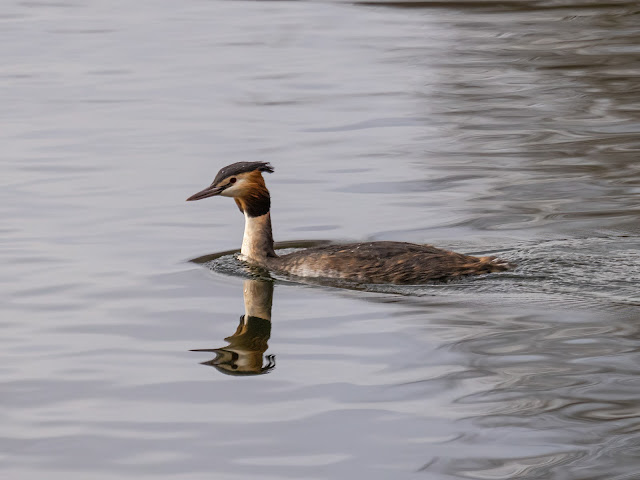I had my first visit to Lee Valley Regional Park for many years today, taking advantage of an Abellio Greater Anglia ticket sale which offered me a day return from Billericay to Cheshunt for a mere £10.
It is a site that is relatively
easy for me to visit by public transport: bus to
Billericay, train to London Liverpool Street followed by another train to Cheshunt
and then a short walk to the site entrance.
Lee Valley Regional Park is a 10,000-acre and 26 miles long linear park. It is Greater London's largest park (more than 4 times the size of Richmond Park) and extends beyond Greater London's borders into the neighbouring counties of Hertfordshire and Essex.
Lee Valley Regional Park follows the course of the River Lea (Lee) along the Lea Valley from Ware in Hertfordshire through Essex and the north east of Greater London, through the Queen Elizabeth Olympic Park to East India Docks Basin on the River Thames. It is managed by Lee Valley Regional Park Authority and is made up of a diverse mix of countryside areas, urban green spaces, heritage sites, country parks, nature reserves, lakes and riverside trails as well as leading sports centres.
The focus of my visit was the Wildlife Discovery Centre in Fishers Green, on the Hertfordshire and Essex border. The centre offers 360 degree views of the area from a 5 metre viewing tower overlooking Seventy Acres Lake and adjacent reedbed, wetland and grassland habitats plus a two-tier viewing hide.
I saw the male Smew in the north west corner of Seventy Acres Lake whilst walking the 1.4 miles from Cheshunt train station to the Wildlife Discovery Centre.
The single Bittern that I saw was, as expected, seen from the hide at the Wildlife Discovery Centre. Views were initially obscured by the surrounding dense reeds but eventually I had excellent views as the bird crossed a channel from one section of the reedbed to another. I also saw a single Water Rail from the hide and was able to watch this bird for several minutes as it bathed although unfortunately it was also slightly obscured by reeds so I was unable to get any photos.
The most notable sightings from my visit were as follows: Bittern (1), Grey Heron (3), Water Rail (1), Kingfisher (1), Smew (1 male), Mallard (c.20), Tufted Duck (c.10), Common Pochard (2 females), Teal (male and female), Gadwall (male and female), Shoveler (3 males and 1 female), Mute Swan (6), Great Crested Grebe (4), Coot (c.25), Moorhen (c.10), Egyptian Goose (2), Canada Goose (c.20), Greylag Goose (2), Cormorant (11), Chiffchaff (1 heard calling), Great Spotted Woodpecker (1 heard calling), Ring-necked Parakeet (1)
Here are some photos from my visit:
Photo: Bittern
Photo: Bittern
Photo: Bittern
Photo: Bittern
Photo: Bittern
Photo: male Smew
Photo: male Smew
Photo: male Smew
Photo: male Smew
Photo: Grey Heron
💚🦆 🦉🦋🐝🦊🦡🌼 🌳💚
Stay safe, stay well, stay strong, stay connected with nature













No comments:
Post a Comment
If you feel like commenting on my blog, you can contact me by completing the comment form below. I will respond to all comments and enquiries and constructive criticism will always be welcomed.